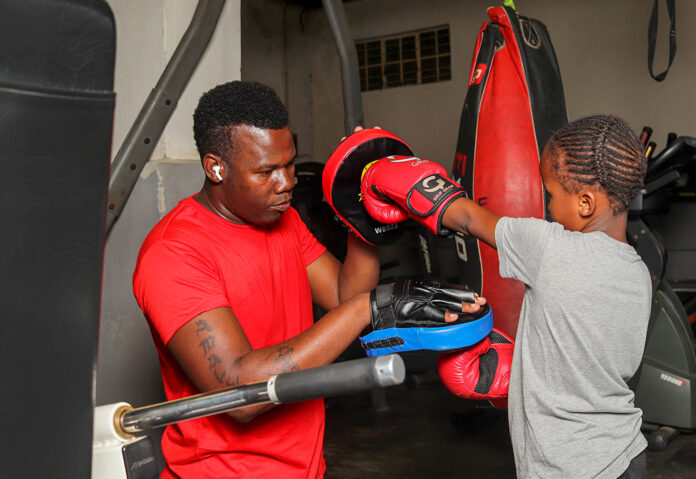
In a small town in northeastern Zimbabwe, the rise of a new generation of boxing champions is causing upsets. That’s because heavyweight Anesu Motsi is determined that there will be another boxing star in his family – in the shape of his daughter, Candice.
Jacqueline Muchazoreka, bird story agency
On a March morning in Rusape town’s Fitness 4_U Gym, Candice Motsi and her father are going through their regular routine. Arms held outward, they jump sideways across the gym floor, warming up for a strength-building session. The two could not be more different; Anesu Motsi is an imposing heavyweight while his daughter Candice is a slight girl of six. Both, however, are boxers.
Candice’s involvement in boxing started early. At nine months, she attended her first boxing match and after clearly enjoying the experience was soon back for more. As soon as she could walk, she would follow her father to his training sessions and join him to watch boxing matches on television.
“As Candice got older she would shock me by commenting on the matches screened on TV. Like, she really understood the discipline,” Anesu said.
“Seeing how she had grown fond of boxing, I started training her at the age of five.”
“With just one year of training, I organised a match for her at The Rise of Champions Tournament held in Harare, she made me proud not only by winning her first match but by showing great skill, implementing all the things that I taught her,” he said.
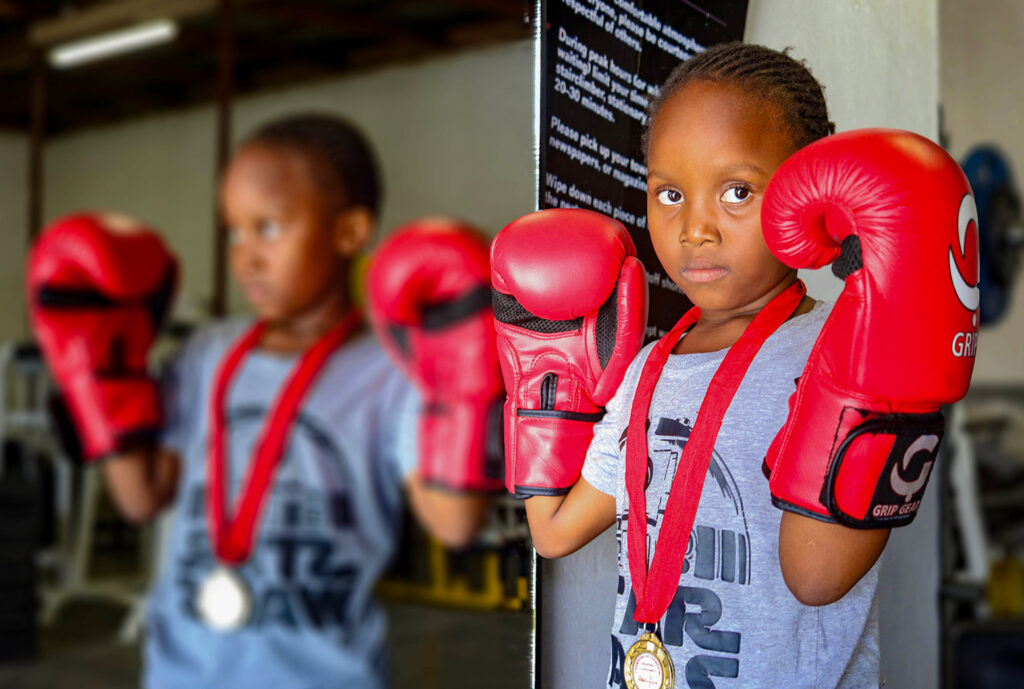
Emerging as a winner in her first amateur match delighted both of them.
“When I won, I was happy, I want to win again” Candice said, her face brimming with joy.
Not everyone in the town is.
“Unfortunately, I received a lot of criticism from people around me who said boxing wasn’t a sport for girls. I chose not to listen to the negative opinions of people because they only limit one’s potential.”
Had Anesu listened to the discouragement, Candice’s strong talent would not have been nurtured as well as it is.
Candice is a glimpse of hope in the trajectory of female boxing in Zimbabwe.
Boxing has long been a male-dominated sport in Zimbabwe to the extent that, in the mid-90s, young pioneer female boxers like Monalisa Sibanda entered matches with boys due to the scarcity of female boxers.
The challenge still exists, decades later. It all stems from a colonial-era law first enacted in 1956, according to boxing analyst Gilbert Munetsi.
“Unfortunately, the Boxing and Wrestling Control Act states that no other person except the male gender should be registered as a professional boxer in Zimbabwe. Women have been boxing on a waiver by the Ministry of Sport,” he explained.
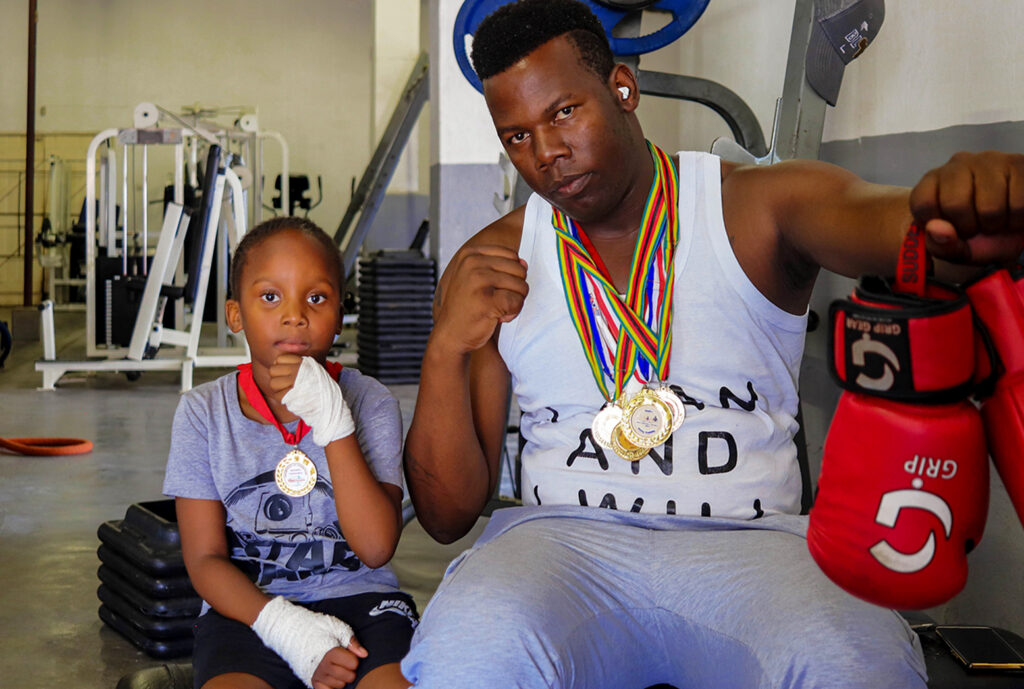
An amendment to the Boxing Act to include and protect female boxers is currently being worked on, the analyst said.
“Boxing is the only sport that is an Act of Parliament in Zimbabwe and it is due to the fact that it involves a lot of physical violence that leads to injury, thus the more reason why it was seen as a male sport then,” Munetsi added.
While the law will ensure the legal inclusion of women boxers in the sport, Munetsi added that government funding is also needed to make boxing more inclusive.
“As it stands, the boxing sport is not receiving any funding from the government. It is expected that in every corner of the country there exists a thriving boxing club, like it used to be, back then, when boxing was a popular sport around the 80s and 90s. More funding will make it possible to reach out to yet-to-be-discovered talent at grassroots,” Munetsi said.
In February, when Candice travelled the 1000 kilometres to Victoria Falls for a match in the Junior League of the Zimbabwe Boxing Federation (ZBF) National Open tournament, her opponent failed to make it and there was no alternative opponent within her weight range of 26 kilograms.
Even though she was honoured by the federation as an aspiring young boxer making outstanding strides in the sport, the disappointment had Candice hoping for more involvement of girls in boxing.
“I want more kids to join boxing, especially girls,” she said.
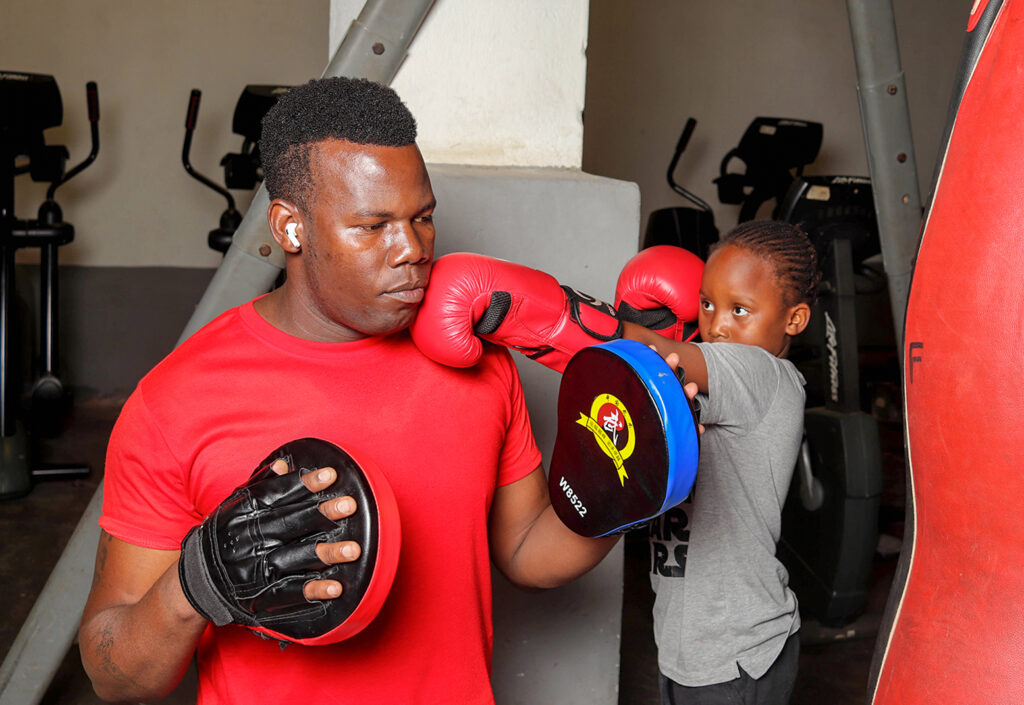
So far, the Junior category of The Zimbabwe Boxing Federation includes amateur boxers aged eight to 17 years. The federation is responsible for nurturing amateur boxers into professional boxers.
In the early rise of female boxing in Zimbabwe, there was a period when only two female boxers, Monalisa Sibanda and Diana Makumbe, transitioned from amateur to professional.
Since then, the number of professional female boxers has increased.
According to Zimbabwe Boxing and Wrestling Control Board (ZBWCB), in 2022 there were 34 registered professional boxers of which 25 were male and nine were female. 2023 saw a notable increase as 70 professionals registered, including 57 male and 13 female.
Regardless of the low participation rate, Zimbabwe boasts of producing professional female boxers who have won world titles.
Sibanda currently holds the Intercontinental Welterweight Title for the Women’s International Boxing Association (WIBA) and is ranked number 9 in the world.
28-year-old Kudakwashe “Take Money” Chiwandire also grabbed the World Boxing Council Interim Super Bantamweight champion title in 2022 and is ranked 14th in the world.
Without government sponsorship, boxing is currently a more popular sport in regions and cities that have more promoters and sponsors and successful boxers have tended to come from the northern region of the country and the capital, Harare.
Promoters and sponsors prefer to support boxing in areas where the sport is popular. That has created a Catch-22 situation where the lack of sponsorship and support in a small town like Rusape has led Anesu to mostly self-fund his career and that of Candice.
Zimbabwe Boxing Federation (ZBF) Technical Director Steven Masiyambumbi said the determination shown by the Motsi family had the potential to improve society’s perceptions of female participation in boxing.
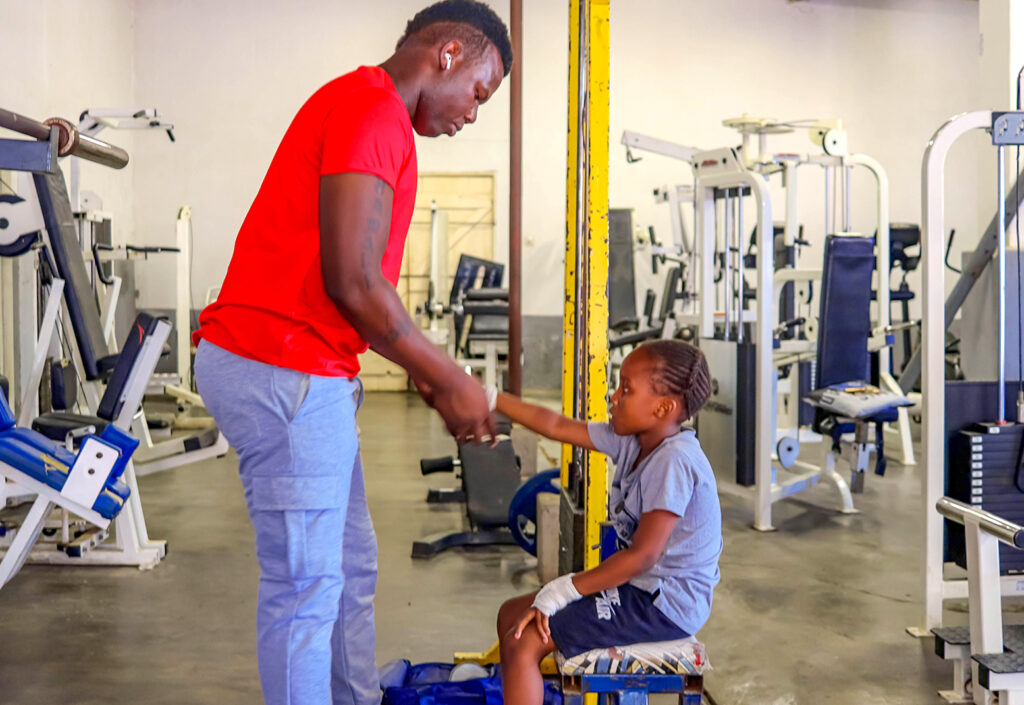
“Currently, we have a challenge in our societies, as most people think that the girl child is not supposed to do boxing. To see Anesu training Candice at such a tender age is a step in the right direction, as we want all parents to come on board and allow girls to do boxing.”
He added that parent-child training is the best combination in boxing, as the parent puts the interest of the child first.
For Candice’s mother, however, the jury is still out as to whether boxing is the best way forward for her daughter.
“I prepare her food and pack her bag with all she needs whenever she goes for training and travels with her father for a match,” she said.
“For now, I am proud of what she has achieved, however, I hope boxing won’t affect her schooling in the coming future.”
Candice, however, has no doubts.
“I love boxing… It makes me happy,” the young boxer concluded.
bird story agency


